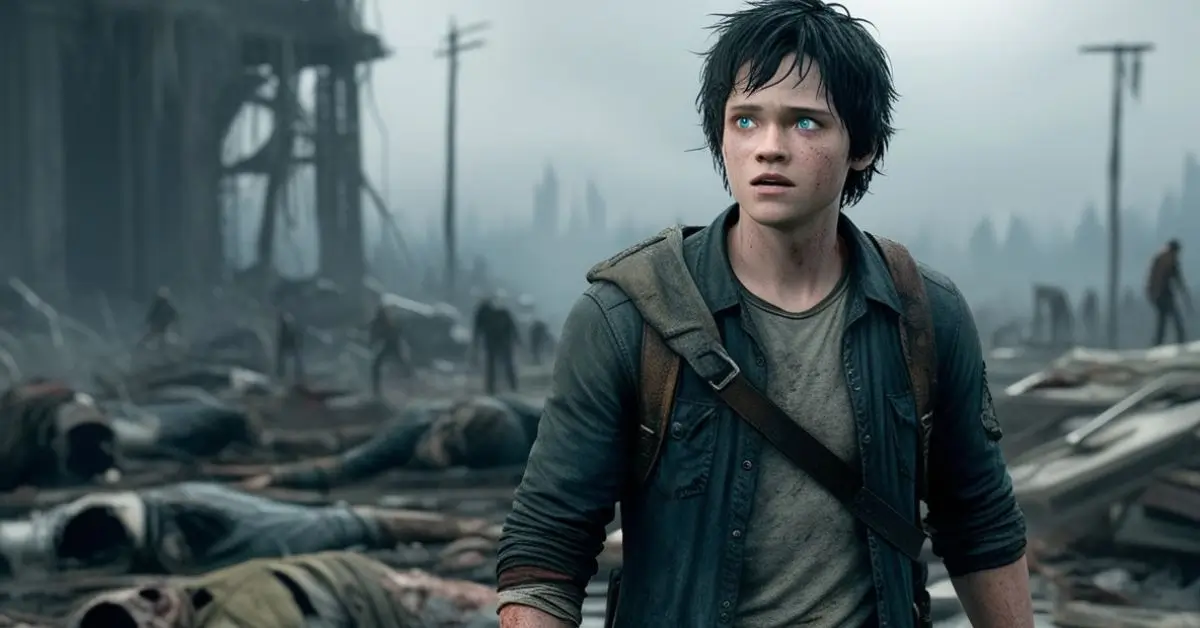Carl Grimes, a beloved character from The Walking Dead, stands as one of the most powerful portrayals of a young person growing up in a post-apocalyptic world. His journey from innocence to resilience offers a profound look into the psychological impact of survival and loss, especially on children. Guided by his father, Rick Grimes, Carl transforms from a sheltered, dependent child into a beacon of hope and strength. This article explores Carl’s character evolution, his relationships, moral conflicts, and his lasting impact on those around him, making him a symbol of humanity’s enduring spirit.
Carl’s Early Days and Relationship with Rick
In the beginning, Carl Grimes is introduced as the young son of Rick Grimes, the protagonist and former sheriff who awakens to find the world overrun by “walkers.” At this stage, Carl is a typical, innocent child who depends on his parents for protection and guidance. His mother, Lori, and father strive to shield him from the horrors of their new reality. However, Carl’s innocence is continuously shattered as he witnesses terrifying encounters with walkers and experiences close brushes with death.
Rick and Carl’s father-son relationship serves as a pivotal foundation in Carl’s life. Rick tries to maintain a sense of normalcy and moral clarity, despite the bleak world around them. Carl’s dependency on Rick highlights his early innocence, and Rick’s protective instincts underscore the lengths to which he’ll go to preserve Carl’s humanity. However, as the world deteriorates, so too does the illusion of safety, and Carl is forced to adapt to this grim reality much sooner than any child should.
Loss of Innocence
Carl’s loss of innocence is gradual but profound, marked by several key events. One of the most traumatic moments is the loss of his mother, Lori, who dies giving birth to his sister, Judith. Carl is forced to take on the responsibility of ending his mother’s suffering to prevent her from turning into a walker. This horrifying act severs any remnants of Carl’s childhood, thrusting him into a world where he must grapple with the pain and trauma of loss at an early age.
This moment is not only significant for Carl’s development but also for the audience, who witness the emotional toll of survival on a child. Carl’s disillusionment grows as he encounters other losses and hardships, including the deaths of friends and allies. Each death hardens him, chipping away at his innocence, while also fueling a fierce determination to protect those he loves.
Development of Carl’s Independence
Carl’s journey from dependence to independence is one of the most compelling aspects of his character arc. As he grows older, Carl begins to assert his autonomy and take on more responsibilities within the group. He starts to make decisions for himself, often taking on solo missions or acting without Rick’s permission to help the group survive. For instance, Carl often goes on dangerous supply runs and even defends the prison from walker invasions.
Carl’s development into a capable survivor is also influenced by other characters like Michonne, who becomes a surrogate mother figure and a mentor. Michonne teaches Carl essential survival skills and provides him with emotional support, filling some of the void left by Lori’s death. Through Michonne, Carl learns to balance strength with compassion, a lesson that proves vital as he grapples with the harsh realities of their world.
Carl’s Moral Compass and His Struggles
As Carl matures, he faces numerous moral dilemmas that challenge his understanding of right and wrong. Growing up in a world where survival often means making difficult, even ruthless, decisions, Carl’s sense of morality is constantly tested. He struggles to reconcile his desire to protect his loved ones with the need to retain his humanity.
One such moment occurs when Carl is forced to kill a boy his age who poses a potential threat to the group. This act raises significant questions about the nature of survival and the sacrifices required to keep loved ones safe. Carl is haunted by the guilt of having taken another life, and this guilt becomes a defining part of his character. The internal conflict between violence and compassion becomes a recurring theme in Carl’s journey, as he strives to maintain his humanity in a world that often demands brutality.
Carl’s Role as a Symbol of Hope
Carl’s character often serves as a symbol of hope for the future, especially in his belief that people can rebuild society and find a way to coexist peacefully. As he grows older, Carl develops a vision of a world where survivors are not solely focused on killing walkers and other humans but are instead working toward rebuilding civilization. He shares these ideals with his father, Rick, urging him to consider the importance of creating a better future for Judith and other children.
This hope is seen in Carl’s relationships with new survivors, where he encourages them to embrace the possibility of a more peaceful life. Carl’s vision of a world beyond survival influences others, inspiring them to consider their own futures and what kind of world they wish to leave behind. Despite the violence he has endured, Carl’s hope and optimism shine through, reminding others that they are not just survivors but potential architects of a new society.
Carl’s Influence on Rick and the Legacy He Leaves
Carl’s influence on Rick is undeniable, especially in later seasons as Rick grapples with his own moral compass and leadership responsibilities. Carl’s ideals about building a better world and finding peaceful solutions resonate deeply with Rick, ultimately changing the way he approaches his role as a leader. Carl’s vision for a kinder, more hopeful future becomes a source of strength for Rick, even after Carl’s death.
Carl’s legacy is felt throughout the series, not just in Rick’s character but also in the way other characters continue to carry his ideals. His writings, which he leaves behind for Rick and others to read, emphasize his belief in the possibility of a brighter future. Carl’s optimism and his desire to see humanity thrive serve as a guiding light for the group, influencing their actions and decisions long after he is gone.
Conclusion
Carl Grimes’ journey from a frightened child to a resilient survivor is a powerful story of growth, loss, and hope. His evolution reflects the struggles faced by anyone seeking to maintain their humanity in a brutal world. Through his relationships, moral challenges, and unyielding hope for a better future, Carl becomes more than just a survivor—he becomes a symbol of resilience and the possibility of redemption. His impact on The Walking Dead universe endures, reminding viewers that even in the darkest of times, there is always a glimmer of hope worth fighting for.











